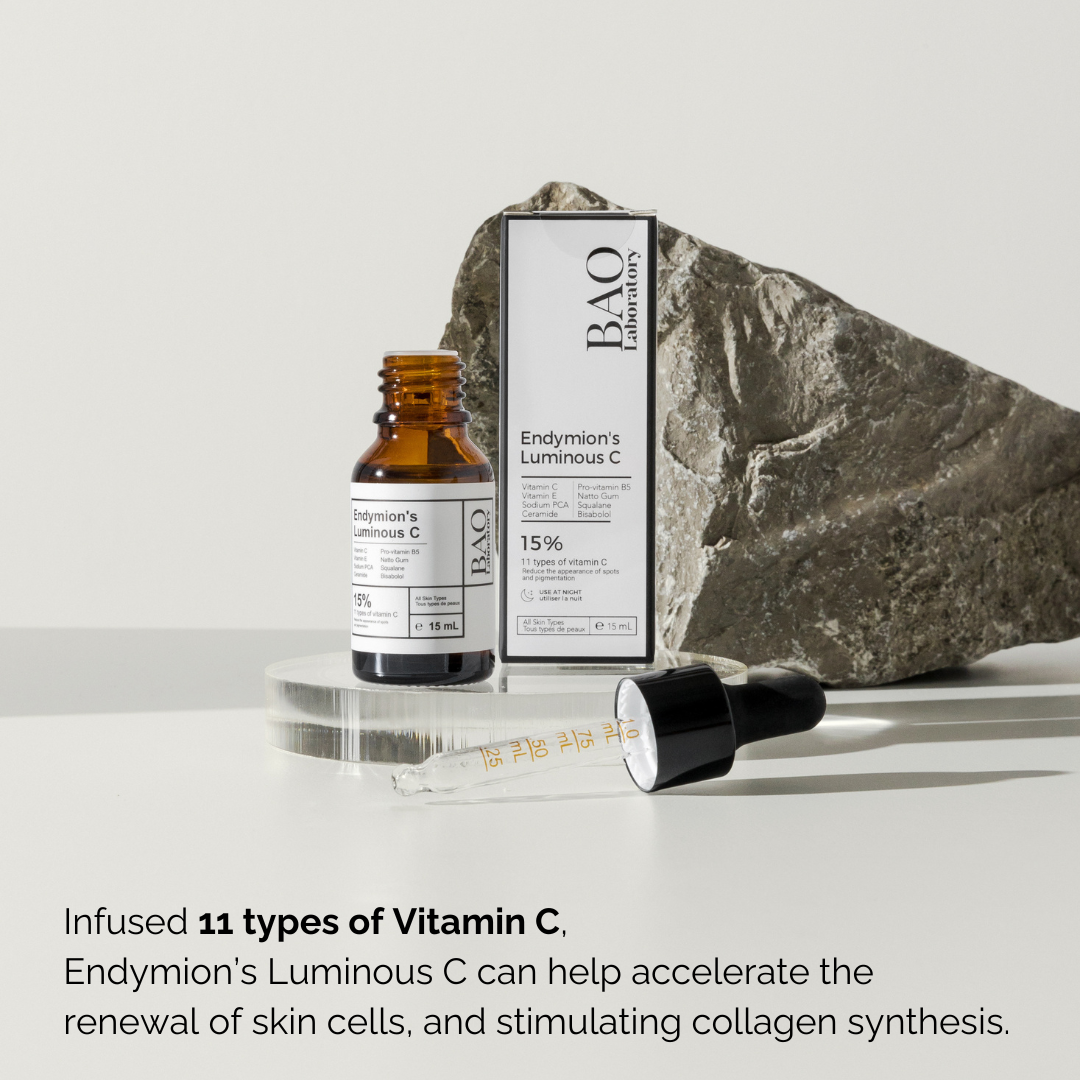
- Home
- /
- Skin Solutions
- /
- The Role of Collagen in Skin Health and the Beneficial Effects of Vitamin C
The Role of Collagen in Skin Health and the Beneficial Effects of Vitamin C

- Vitamin C Serum
- baoadm
Share:
Collagen, a naturally occurring protein in the body, plays a pivotal role in maintaining the structural integrity of the skin. As we age, our collagen production dwindles, leading to the inevitable appearance of wrinkles and skin sagging. One way to support the synthesis and maintenance of collagen is through Vitamin C. This article delves into how collagen forms, its role in skin health, and how Vitamin C can be a vital ally in the quest for youthful and vibrant skin.
How Does Collagen Form?
Collagen synthesis begins at the cellular level. Fibroblasts, a type of cell found in connective tissues, are the primary producers of collagen in the skin. When activated, fibroblasts produce procollagen, a precursor to mature collagen. Procollagen undergoes several enzymatic reactions outside the cell, turning into tropocollagen, which then assembles into fibrils. These fibrils bundle together to form collagen fibers, which provide strength and support to the skin.
This process is not just innate but is also influenced by various external factors. Sunlight exposure, especially ultraviolet rays, can break down collagen, whereas certain nutrients can enhance its synthesis.
What Does Collagen Do in Skin?
Collagen serves as the ‘scaffolding’ of the skin. It provides the following benefits:
- Strength and Elasticity: Collagen fibers confer tensile strength to the skin, making it resilient against daily wear and tear. Moreover, they provide the skin with its elastic properties, allowing it to return to its original shape after being stretched.
- Hydration: Collagen, along with other skin components, helps maintain skin hydration by retaining water. This ensures that the skin remains plump and luminous.
- Wound Healing: Collagen plays a crucial role in wound healing, facilitating the formation of new skin and reducing the appearance of scars.
How Can Vitamin C Help Create or Maintain Collagen?
Vitamin C (ascorbic acid) is not just an antioxidant; it’s a vital co-factor for collagen synthesis. Here’s how it supports the collagen framework:
- Enzymatic Support: Vitamin C aids in the hydroxylation of collagen molecules, a process that stabilizes and strengthens the collagen fibers. Without sufficient Vitamin C, collagen synthesis can be impaired, leading to weak and fragile skin.
- Antioxidant Protection: Vitamin C, being a potent antioxidant, neutralizes free radicals that damage collagen fibers. This not only preserves the existing collagen but also promotes the synthesis of new collagen.
- Stimulation of Fibroblasts: Research suggests that Vitamin C can stimulate fibroblasts to produce more collagen, enhancing skin’s overall texture and reducing the appearance of wrinkles.
Collagen remains at the forefront of skin health, providing structure, elasticity, and hydration. As we seek ways to maintain youthful and resilient skin, understanding the importance of collagen and the supportive role of Vitamin C becomes paramount. Incorporating Vitamin C into your skincare routine, whether through topical serums or dietary sources, can be a game-changer in the pursuit of radiant skin.









